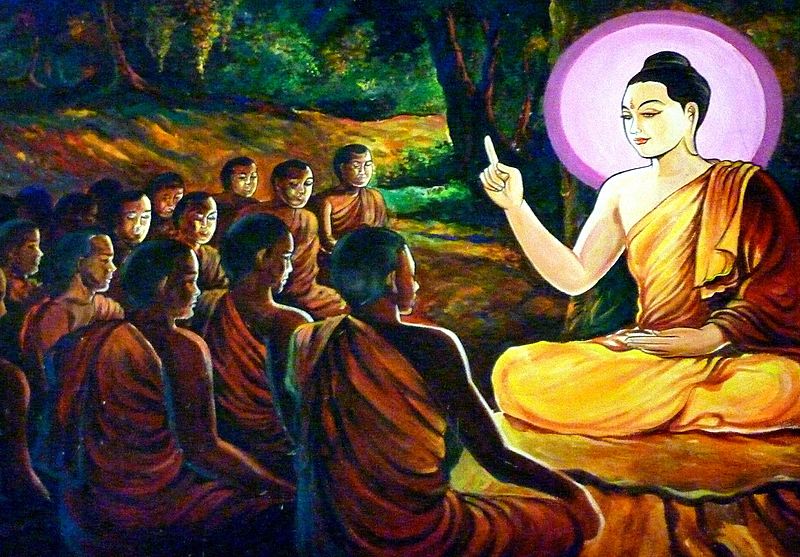
Photo Wikimedia Commons
In Asian Buddhist countries that follow the lunar calendar, those certain days depending on the phases of the moon are considered to be sacred and holy days. Those days are called Uposatha Observance Days. On Uposatha days we Buddhists practice even more seriously, even more intensely. We try to eat healthier, more mindfully eating and preparing food. We try to practice meditation with more focus, and also do more spiritual reading. We practice giving, and also compassion and selflessness. These moon phase days or ( Uposatha Days) are considered to be sacred because they relate to the Buddhas life achievements which were all on full moon days. The Birth of the Buddha was on a full moon day, his renunciation also took place on a full moon. He achieved Enlightenment on a full moon day, taught his first sermon and also passed away on full moon days.
Slight is this perfume of tagara and sandalwood, best the perfume of the virtuous blowing even to the devas. The perfume of flowers does not go against the wind, neither that of sandalwood, jasmine, or tagara: but the perfume of the virtuous does go against the wind. The good man suffuses all directions, Sandalwood or tagara, lotus or the jasmine great — of these perfumes various, virtue's perfume is unexcelled.Buddha
Many Buddhists practitioners visit temples or monasteries on these sacred Uposatha days. They go to practice with the monastics who are also observing Uposatha more intensely, they also go to practice in a monastic way for a day. There are so many healthy benefits of observing sacred or holy days, practicing alone is good as well as practicing with a community. Some people need their space, and others do better and can study better with a community, however you practice though it doesn’t matter so as long as you practice working on the ( Inner Work), this is what’s important. The Buddhist Uposatha days are supposed to bring us peace of mind, joy, happiness, and less stress. I have found that by observing the practices, living more mindfully and eating vegetarian foods, one can achieve a certain inner peace.
Just like in practicing an art form or a skillful craft, practicing peace and compassion also rewards us with peace. When we can take time to focus on what brings us peace, whatever healthy practices we may have, not just Buddhist practices but any practice, we can come closer to that peace we seek in our lives. Turning this practice into a lifestyle practice reminds us to take time to focus on our mental health needs, to eat healthy and to have time to just breathe and relax. Even if someone doesn’t practice the Buddhist traditions, there is still so much beneficial material that can be applied into ones daily life.
Questions to contemplate
- what hours of the day do I feel most relaxed?
- What healthy foods do I enjoy eating that leave me feeling healthy and full?
- How can I create a more relaxing and peaceful environment in my home?
- What meditation practices bring me peace?
- How can I practice in a way that liberates me and brings me peace?
You can read more about Buddhist practice here: https://www.accesstoinsight.org/lib/authors/khantipalo/wheel206.html
To read about Uposatha Observance check out this link: https://www.budsas.org/ebud/whatbudbeliev/217.htm
May each day be peaceful!
Jarrelle
